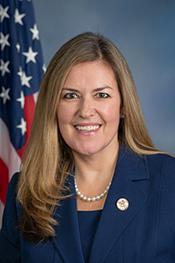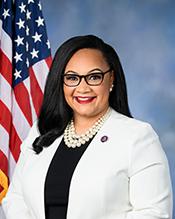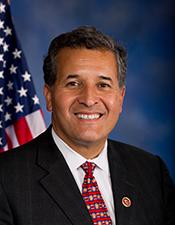0
0
0
IDEA Full Funding Act
12/15/2023, 4:00 PM
Summary of Bill HR 4519
The IDEA Full Funding Act, also known as Bill 118 hr 4519, is a piece of legislation introduced in the US Congress that aims to fully fund the Individuals with Disabilities Education Act (IDEA). The IDEA is a federal law that ensures students with disabilities receive a free and appropriate public education. However, Congress has never fully funded the IDEA, leaving states and local school districts to cover the remaining costs.
The IDEA Full Funding Act seeks to address this issue by providing the necessary funding to fully implement the IDEA. This would include funding for special education services, resources, and support for students with disabilities. The bill aims to ensure that all students, regardless of their abilities, have access to a quality education that meets their individual needs.
Supporters of the IDEA Full Funding Act argue that fully funding the IDEA is essential to ensuring that students with disabilities have the same opportunities for success as their peers. They believe that investing in special education programs will ultimately benefit society as a whole by helping students with disabilities reach their full potential. Opponents of the bill may argue that fully funding the IDEA could place a significant financial burden on the federal government. They may also question the effectiveness of special education programs and whether additional funding is necessary. Overall, the IDEA Full Funding Act is a significant piece of legislation that has the potential to greatly impact the education and future opportunities of students with disabilities. It will be important to closely monitor the progress of this bill as it moves through Congress and consider the potential implications of fully funding the IDEA.
The IDEA Full Funding Act seeks to address this issue by providing the necessary funding to fully implement the IDEA. This would include funding for special education services, resources, and support for students with disabilities. The bill aims to ensure that all students, regardless of their abilities, have access to a quality education that meets their individual needs.
Supporters of the IDEA Full Funding Act argue that fully funding the IDEA is essential to ensuring that students with disabilities have the same opportunities for success as their peers. They believe that investing in special education programs will ultimately benefit society as a whole by helping students with disabilities reach their full potential. Opponents of the bill may argue that fully funding the IDEA could place a significant financial burden on the federal government. They may also question the effectiveness of special education programs and whether additional funding is necessary. Overall, the IDEA Full Funding Act is a significant piece of legislation that has the potential to greatly impact the education and future opportunities of students with disabilities. It will be important to closely monitor the progress of this bill as it moves through Congress and consider the potential implications of fully funding the IDEA.
Read the Full Bill
Current Status of Bill HR 4519
Bill HR 4519 is currently in the status of Bill Introduced since July 10, 2023. Bill HR 4519 was introduced during Congress 118 and was introduced to the House on July 10, 2023. Bill HR 4519's most recent activity was Referred to the House Committee on Education and the Workforce. as of July 10, 2023
Bipartisan Support of Bill HR 4519
Total Number of Sponsors
1Democrat Sponsors
1Republican Sponsors
0Unaffiliated Sponsors
0Total Number of Cosponsors
266Democrat Cosponsors
246Republican Cosponsors
20Unaffiliated Cosponsors
0Policy Area and Potential Impact of Bill HR 4519
Primary Policy Focus
EducationAlternate Title(s) of Bill HR 4519
IDEA Full Funding Act
IDEA Full Funding Act
To amend part B of the Individuals with Disabilities Education Act to provide full Federal funding of such part.
Comments
Sponsors and Cosponsors of HR 4519
Latest Bills
Providing amounts for the expenses of the Committee on Ethics in the One Hundred Nineteenth Congress.
Bill HRES 131December 12, 2025
Providing for congressional disapproval under chapter 8 of title 5, United States Code, of the rule submitted by the Bureau of Land Management relating to "Central Yukon Record of Decision and Approved Resource Management Plan".
Bill HJRES 106December 12, 2025
Expressing the sense of the House of Representatives in condemning the Government of the People's Republic of China for its harassment and efforts to intimidate American citizens and other individuals on United States soil with the goal of suppressing speech and narratives the People's Republic of China finds unwelcome.
Bill HRES 130December 12, 2025
Providing for congressional disapproval under chapter 8 of title 5, United States Code, of the rule submitted by the Bureau of Land Management relating to "North Dakota Field Office Record of Decision and Approved Resource Management Plan".
Bill HJRES 105December 12, 2025
Providing for congressional disapproval under chapter 8 of title 5, United States Code, of the rule submitted by the Bureau of Land Management relating to "Miles City Field Office Record of Decision and Approved Resource Management Plan Amendment".
Bill HJRES 104December 12, 2025
Providing amounts for the expenses of the Select Committee on the Strategic Competition Between the United States and the Chinese Communist Party in the One Hundred Nineteenth Congress.
Bill HRES 104December 12, 2025
Critical Access for Veterans Care Act
Bill S 1868December 12, 2025
OATH Act of 2025
Bill S 1665December 12, 2025
A bill to extend the authority for modifications to the Second Division Memorial in the District of Columbia.
Bill S 1353December 12, 2025
Saving Our Veterans Lives Act of 2025
Bill S 926December 12, 2025
IDEA Full Funding Act
Bill S 2217December 7, 2023
Keep Our PACT Act
Bill S 1202January 31, 2024
Keep Our PACT Act
Bill HR 2715December 15, 2023





